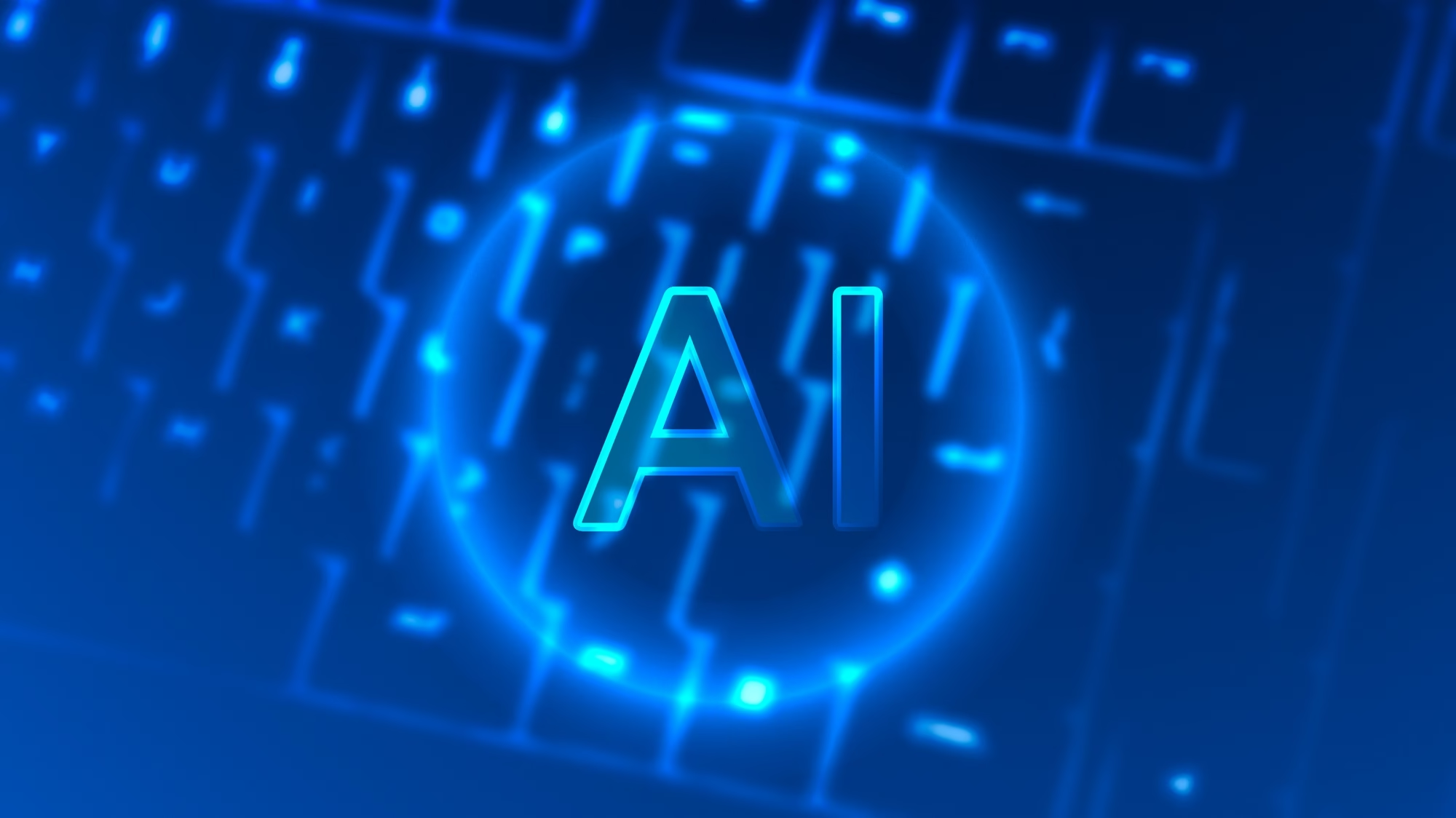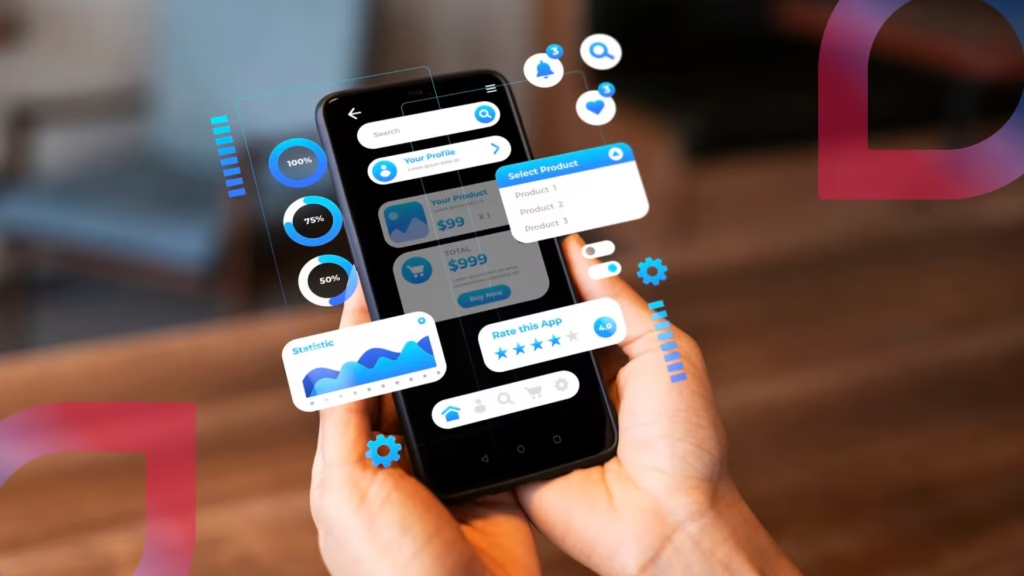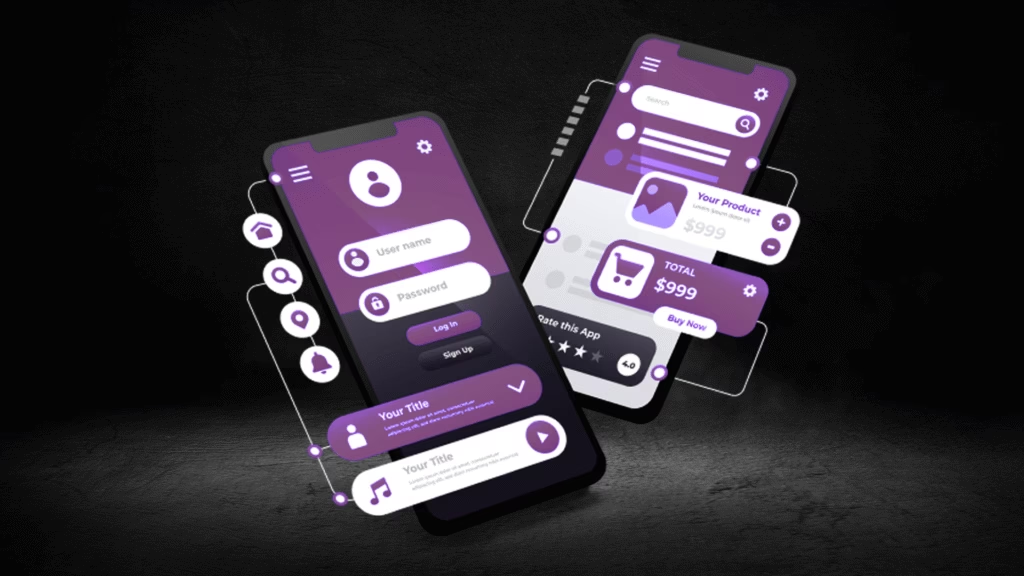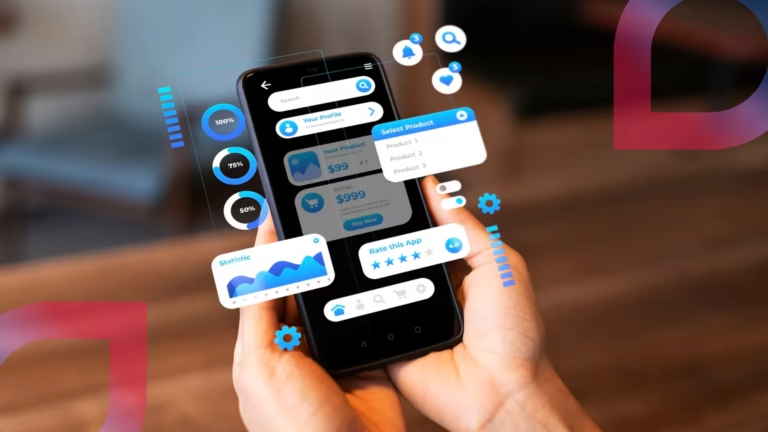
Introduction to AI in App Development
Artificial intelligence (AI) is revolutionizing the landscape of app development, offering innovative solutions that significantly enhance traditional programming methodologies. The integration of AI technologies into the app development process streamlines workflows, improves user experience, and introduces new functionalities that were previously unattainable. This quick guide delves into the transformative impact of AI on app development, showcasing its benefits and applications.
One of the foremost advantages of incorporating AI into app development is the ability to analyze vast amounts of data rapidly. AI algorithms can examine user behavior patterns, preferences, and needs, enabling developers to create personalized experiences that cater to individual users. This personalized approach not only enhances user satisfaction but also boosts engagement and retention rates, which are critical for the success of any application.
Moreover, AI-driven tools can automate repetitive tasks that typically consume significant time and effort during the development process. For instance, developers can utilize AI to write code, test applications, and even troubleshoot issues. This automation leads to faster development cycles, allowing teams to bring products to market more swiftly while maintaining quality standards. As a result, businesses can respond to changing market demands more rapidly, maintaining a competitive edge.
The functionality of apps can also be greatly enhanced through the integration of AI features such as chatbots, natural language processing, and image recognition. These capabilities not only improve the usability of applications but also provide a platform for innovation in functionalities that can address complex user requirements. As the technology continues to evolve, the opportunities for incorporating AI in app development will grow, further reshaping the future of software design.
Understanding AI Technologies
Artificial Intelligence (AI) has significantly transformed various domains, particularly in app development. This transformation is largely driven by several key technologies, each offering unique capabilities that enhance the functionality and user experience of modern applications.
One of the primary AI technologies employed in app development is machine learning. This technology enables applications to learn from data, identifying patterns and making predictions without explicit programming for each scenario. For instance, recommendation systems used by e-commerce platforms, such as Amazon, analyze user behavior to provide personalized product suggestions. As users engage more frequently, the system continually improves its recommendations, ultimately enhancing user satisfaction and engagement.
Another crucial component of AI in app development is natural language processing (NLP). NLP allows applications to understand and process human language in a meaningful way. This technology is employed in chatbots and virtual assistants, allowing users to interact seamlessly with applications through voice or text. For example, applications like Siri or Google Assistant utilize NLP to interpret user queries and deliver relevant results. This capability not only streamlines user interaction but also makes technology more accessible to individuals who may struggle with traditional interfaces.
Lastly, computer vision is an AI technology that empowers applications to interpret and understand visual information. This is particularly useful in sectors such as healthcare, where AI-powered apps can analyze medical images for diagnostic purposes. For instance, certain applications enable doctors to detect anomalies in X-rays or MRIs, facilitating quicker diagnoses and improved patient outcomes.
These AI technologies—machine learning, natural language processing, and computer vision—are pivotal in modern app development. They leverage data-driven insights to create more responsive, intuitive, and effective applications that meet the evolving needs of users.
AI in Planning and Design
Artificial intelligence (AI) is transforming the landscape of app development, particularly during the crucial planning and design phases. By leveraging advanced algorithms and data analytics, AI tools provide developers with insights that significantly enhance decision-making, ensuring that the final product aligns closely with user expectations and market trends.
One of the primary applications of AI in this phase is its ability to analyze vast amounts of user data and preferences. By utilizing machine learning techniques, developers can glean valuable insights from user interactions, demographics, and feedback. This data-driven approach allows for a more informed design process, as developers can prioritize features that resonate with target audiences. For instance, through user behavior analysis, AI can identify which design elements or functionalities are most appealing, leading to more engaging app experiences.
Moreover, AI assists in predicting user behavior and trends, which is pivotal for creating forward-thinking applications. By examining patterns in user activity, AI can forecast how potential users might interact with the app, enabling developers to proactively address user needs. For example, if AI indicates a growing trend towards personalized content consumption, developers can implement features that incorporate customization, enhancing user satisfaction and retention.
Incorporating AI into the planning and design phases not only streamlines workflows but also fosters innovation. Developers can simulate various scenarios using predictive modeling, which guides them in creating adaptable app features. This continuous feedback loop ultimately results in applications that are not only feature-rich but also functionally aligned with user expectations.
By embracing AI in these early stages of app development, teams can set the foundation for successful applications that are user-centered and future-ready. The integration of AI tools is an essential strategy for developers aiming to stay competitive in the fast-evolving technology landscape.
Enhancing User Experience with AI
In the competitive landscape of app development, enhancing user experience (UX) has become a critical priority. Artificial intelligence (AI) plays a vital role in this regard by providing innovative solutions that personalize interactions and improve user satisfaction. Personalization strategies driven by AI algorithms analyze user behavior, preferences, and engagement patterns to tailor the app experience to individual users. For instance, an e-commerce app may use AI to recommend products based on a user’s previous purchasing history, making navigation both intuitive and engaging.
Moreover, AI-driven recommendation systems are revolutionizing how users interact with content. By leveraging data analytics and machine learning, apps can predict what users would like to see, thereby optimizing content delivery and increasing user retention rates. Streaming platforms, such as Netflix and Spotify, exemplify this approach, offering customized playlists and recommendations that keep users returning for more. This level of customization not only enhances user satisfaction but also contributes to the overall success of the app in terms of engagement metrics.
Additionally, AI-powered chatbots and virtual assistants are becoming integral components of app development. These intelligent agents can adapt to user interactions by learning from previous conversations and providing real-time support or suggestions. This not only streamlines user inquiries and problem resolution but also fosters a sense of connection between the user and the app. Many service-based apps have successfully integrated chatbots, resulting in reduced response times and improved user satisfaction levels.
Case studies illustrate the effectiveness of these AI-driven features in the app landscape. For example, platforms like Duolingo harness AI to create personalized language learning experiences, adapting to the user’s progress and learning pace. Such applications exemplify how integrating AI into app development can significantly enhance the user experience and drive meaningful engagement.
Automating Development Processes
Artificial intelligence (AI) has shown significant promise in revolutionizing the app development lifecycle by automating many traditional processes. This incorporation of AI tools minimizes the tedious manual tasks that developers often face, enabling them to focus on more creative and strategic aspects of app development. Notably, AI-driven technologies can bolster the coding, testing, and debugging phases, leading to enhanced productivity and reduced human error.
In the coding phase, AI frameworks can analyze existing codebases and suggest optimizations or even generate code snippets automatically. Tools such as GitHub Copilot have emerged utilizing natural language processing to understand a developer’s intention and provide relevant code suggestions in real-time. This can drastically reduce the time spent on routine coding tasks, leaving developers free to address more complex problems that require human insight.
When it comes to testing, AI can automate the generation of test cases, simulating a variety of user interactions efficiently. AI testing frameworks can execute these tests rapidly, identifying bugs that may not be detectable through manual testing alone. Furthermore, these tools utilize machine learning algorithms to improve their testing procedures over time, adapting to new code and identifying potential issues with increased accuracy. For example, platforms using AI can prioritize tests based on past failures, thus enhancing the overall testing process.
Debugging, often considered the most time-consuming aspect of app development, can also be streamlined with AI. Machine learning models analyze patterns in errors and suggest fixes or improvements based on historical data. These insights can help developers resolve issues quickly, ensuring that app quality is maintained without the exhaustive manual review typically required.
Incorporating AI into these development processes ultimately leads to greater efficiency and higher-quality applications. By utilizing AI-driven tools, developers are equipped to automate routine tasks, allowing them to concentrate on innovation and creativity within their app development projects.
AI for Data Analysis and Insights
Artificial Intelligence (AI) stands at the forefront of app development, significantly enhancing how developers approach data analysis. One of the primary ways AI contributes to this field is through its ability to process vast amounts of user data quickly and efficiently. With AI tools, developers can analyze user interaction patterns within their apps, extracting valuable insights that inform future improvements and feature enhancements.
For instance, AI-powered analytics platforms can track user behavior comprehensively, identifying trends that may go unnoticed through traditional analysis methods. These platforms utilize machine learning algorithms to assess data in real-time, enabling developers to understand how users engage with their applications. This understanding can lead to better design decisions and ultimately, a more satisfying user experience.
Moreover, AI can highlight correlations between various data points, such as the impact of specific features on user retention rates. By providing these insights, developers can prioritize updates based on what users find most beneficial. For example, if AI analysis indicates that a new feature has led to increased engagement, developers may choose to expand on that feature or introduce related functionalities, fostering continuous improvement in the app’s performance.
Several tools are available to assist developers in harnessing AI for data analysis. Platforms like Google Analytics and Mixpanel offer AI-enhanced features that allow developers to segment users based on behavior, predict trends, and visualize data effectively. These insights can be pivotal for making informed decisions about app development and future enhancements. In utilizing AI for data analysis, developers are empowered to create user-centered applications that evolve in tune with user needs, ensuring a competitive edge in the fast-paced world of app development.
Challenges and Considerations
The integration of AI within app development presents a range of challenges that developers must navigate to harness its full potential. One significant concern is data privacy. As AI systems require substantial amounts of data to function effectively, ensuring the protection of user information is paramount. Developers must adhere to regulations like the General Data Protection Regulation (GDPR) to maintain compliance. Failure to prioritize data privacy could result in legal repercussions and a loss of user trust.
Moreover, the quality and quantity of data significantly impact AI’s performance. AI models rely on well-structured, accurate data to produce meaningful outcomes. Developers face the challenge of obtaining high-quality datasets that are not only ample in size but also relevant to the application’s objectives. Poor quality data can lead to erroneous conclusions and ultimately, a subpar user experience.
Another critical consideration is the potential for biases in AI algorithms. Since AI systems learn from historical data, any biases present in that data can inadvertently be perpetuated and magnified. Developers must be vigilant in evaluating their training datasets to identify and mitigate any biases that could negatively influence the application’s output. This care is necessary to ensure equitable treatment for all users and to enhance the system’s credibility.
Lastly, while AI can significantly enhance user interactions, maintaining a human touch remains essential. Users often seek personalized experiences that evoke emotional responses, which AI may struggle to replicate fully. Striking the right balance between leveraging AI capabilities and fostering genuine human interactions is crucial for app developers. As such, they should consider ways to incorporate human oversight in automated processes to enhance user satisfaction and trust in the technology.
Future Trends in AI and App Development
The landscape of app development is continually evolving, with artificial intelligence (AI) at the forefront of these changes. As we look into the future, several predictions and trends are emerging that indicate how AI technologies will further revolutionize app development. One notable trend is the automation of coding processes. With advancements in AI, tools are being developed that can generate code based on minimal input from developers. This automation is expected to streamline the development process, allowing for faster and more efficient creation of applications.
Furthermore, as AI systems become more sophisticated, it is anticipated that they will enhance user experience through personalized interactions. By analyzing user behavior and preferences, AI can tailor app functionalities to meet individual needs, resulting in a more intuitive user experience. This level of personalization not only enhances user satisfaction but also increases user engagement, which is critical for the success of any app.
Another significant trend is the integration of AI-driven analytics within app development. These analytics tools can provide developers with real-time insights into user interactions and overall app performance. By leveraging these insights, developers can make informed decisions about updates and feature enhancements, ultimately leading to more successful applications in the market.
Moreover, the collaboration between humans and AI in app development is set to evolve. As AI tools become more advanced, the role of the developer may shift from coding to more strategic tasks, such as overseeing AI algorithms and ensuring that they align with user needs. This emerging relationship suggests that while AI will take on more technical responsibilities, human developers will focus on creative and strategic aspects of app design, fostering innovation.
In conclusion, the future of AI in app development looks promising, with numerous trends indicating that this technology will significantly enhance efficiency, personalization, and collaboration. As developers embrace these changes, they will be well positioned to create more effective and engaging applications. Staying informed about these trends will ensure that developers can take full advantage of the opportunities presented by the integration of AI into app development.
Conclusion
In the rapidly evolving landscape of technology, artificial intelligence (AI) has emerged as a critical factor in shaping the future of app development. This quick guide has discussed the various ways in which AI enhances the development process, making it more efficient, innovative, and user-centric. With the integration of AI, developers can leverage advanced capabilities such as predictive analytics, personalized experiences, and automation, which not only streamline workflows but also improve the overall quality of applications.
The application of AI in app development cascades benefits across several domains. For instance, the utilization of machine learning algorithms allows developers to analyze user behavior more effectively, facilitating the creation of tailored solutions that resonate with target audiences. Moreover, AI-driven tools can automate repetitive tasks, freeing developers to focus on more strategic aspects of app design and functionality. This not only accelerates the development timeline but also fosters a culture of innovation.








